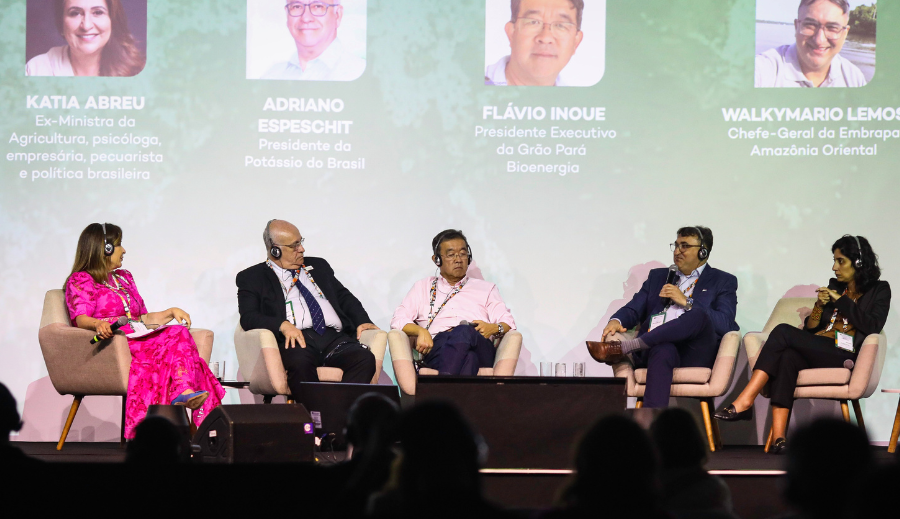Text: Mateus Miranda, edited by Alice Martins
Photos: Philip Bishop
The Amazon is the region of Brazil that has the highest rate of food insecurity in the country. Despite this, the scenario offers possible alternatives to reverse this situation, as highlighted by Walkymario Lemos, General Manager of Embrapa Amazônia Oriental. "Here, we have everything. Little variation in temperature, suitable climate and good soil. We are a series of complex potentialities", he commented.
These regional conditions help Brazil to be the largest food exporter in the world. In 2023, the food industry recorded the best performance and installed capacity in the last 10 years. However, according to theUnited Nations Hunger Map (UN), in absolute numbers, 14.7 million people stopped going hungry in Brazil in 2023. Severe food insecurity, which affected 17.2 million Brazilians in 2022, fell to 2.5 million. In percentage terms, the drop was from 8% to 1.2% of the population.
In order to ensure that food production reaches families' tables in a more balanced way, Liége Correia, Sustainability Director at JBS Brazil, emphasizes that special attention must be paid to one aspect: food tracking. "This is essential to ensure that food is accessible to producers and consumers. This would give Brazil visibility and tell the world that it can do this. The country is capable of meeting demands. If the goal is to end deforestation, we need to involve producers, until a large part of this forest is on farms," she added.
The journalism initiative Amazônia Vox is providing its first live, in-person coverage this week. With a team of twelve professionals, the main points and debates of the panels during the 2nd International Conference on the Amazon and New Economies will be highlighted.Follow full coverage here.
During the conversation, Adriano Espeschit, president of Potássio do Brasil, added that the energy source used in Brazil brings greater confidence to Brazilian food in the international market. "We have 84% renewable energy. This represents 1,500 tons less carbon that we are releasing into the atmosphere.”
Food insecurity, renewable energy and distribution were some of the topics discussed during the panel on how "Food Production Can Guarantee Autonomy and Environmental Security in the Amazon" this Thursday (7), during the second day of the International Conference on Amazon and New Economies.
A special coverage Amazônia Vox at the II International Conference on the Amazon and New Economies is brought to you by Vale.




